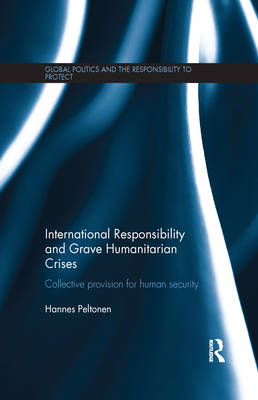
- Afhalen na 1 uur in een winkel met voorraad
- In januari gratis thuislevering in België
- Ruim aanbod met 7 miljoen producten
- Afhalen na 1 uur in een winkel met voorraad
- In januari gratis thuislevering in België
- Ruim aanbod met 7 miljoen producten
International Responsibility and Grave Humanitarian Crises
Collective Provision for Human Security
Hannes PeltonenOmschrijving
This book examines responsibility in grave humanitarian crises, focusing on the international community's collective responsibility to take action in such cases as genocide or ethnic cleansing.
The idea of collective responsibility highlights how we would like to see the global level primarily as something more akin to a community of peoples, rather than as a society of states in which other international and transnational actors operate. Since the acceptance of human rights, and in view of the atrocities of the Holocaust and other genocides, we have realized that some things concern us all: a realization that has led to the development of the responsibility to protect (R2P) framework.
This book focuses on understanding the international community and its collective responsibility. Unlike the research frameworks put forward in other publications on this topic, the research model developed here does not distribute the collective responsibility to particular actors; instead, it sets out how the burden should be divided among those actors responsible in order to protect human security on a global scale.
This book will be of interest to students of humanitarian intervention, the responsibility to protect, international law, peace and conflict studies, and international relations in general.
Specificaties
Betrokkenen
- Auteur(s):
- Uitgeverij:
Inhoud
- Aantal bladzijden:
- 168
- Taal:
- Engels
- Reeks:
Eigenschappen
- Productcode (EAN):
- 9781138087828
- Verschijningsdatum:
- 31/05/2017
- Uitvoering:
- Paperback
- Formaat:
- Trade paperback (VS)
- Afmetingen:
- 156 mm x 234 mm
- Gewicht:
- 244 g

Alleen bij Standaard Boekhandel
Beoordelingen
We publiceren alleen reviews die voldoen aan de voorwaarden voor reviews. Bekijk onze voorwaarden voor reviews.









